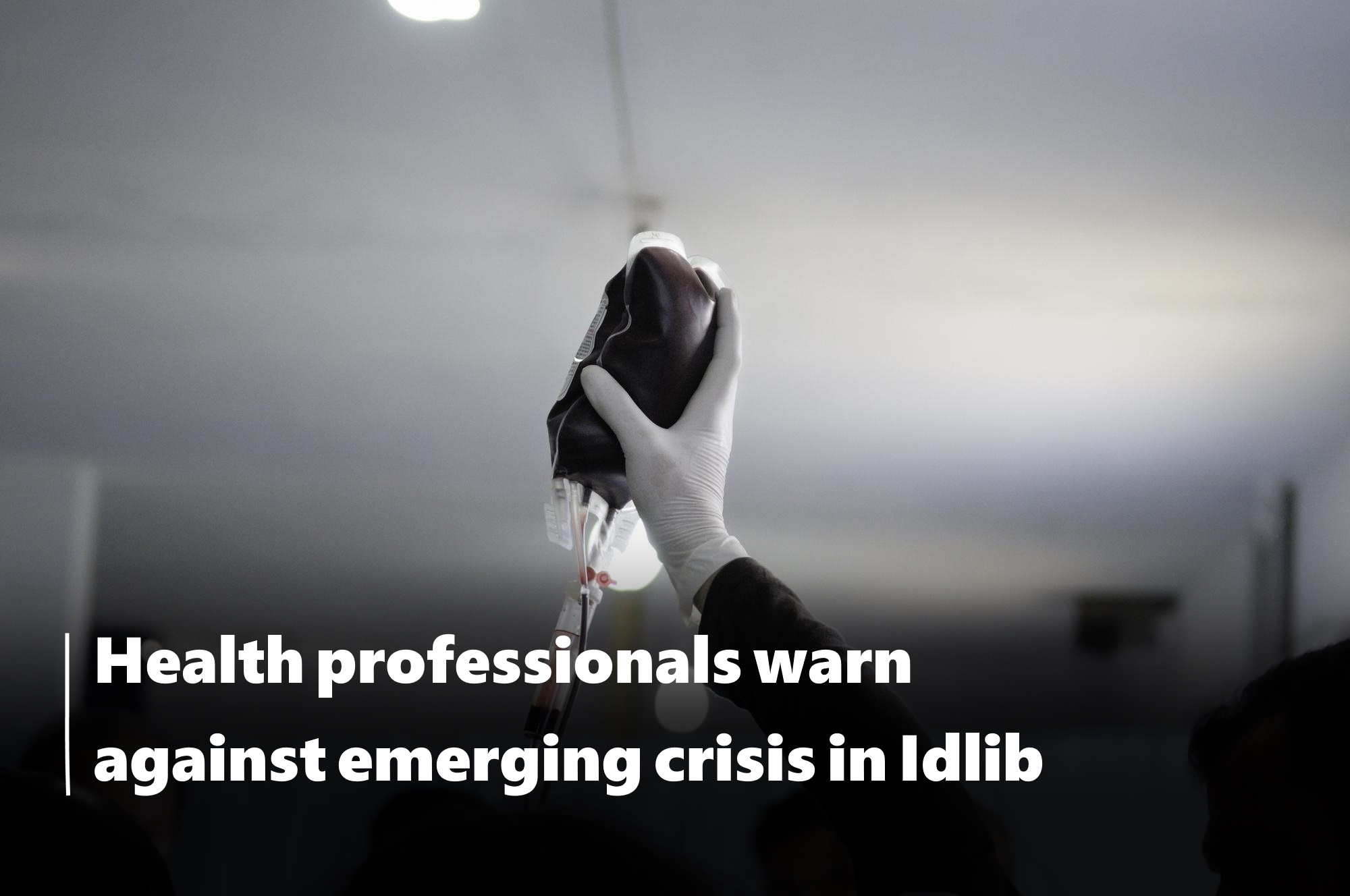
The public health and medical sector is one of the greatest causalities and victims of the Syrian conflict. Systemic targeting of vital civilian infrastructure, healthcare workers and facilities by Russia and their Syrian allies and their withholding of international humanitarian aid, prevent the 6.4 million people in northern Syria from their right to health and medical care as mandated under the Geneva Conventions and the Convention on Economic, Social and Cultural Rights.
In the fall of last year, Syrian Response Coordinators (SRC) declared: “Donor organizations Hand in Hand, Relief International, SAMS, and SRD have suspended support for the following hospitals and medical centers in Idlib: Kafr Takharim Obstetrics and Children’s Hospital, Al-Rahma Hospital in Darkush, Saving a Soul Hospital in Salqin, al-Salam Hospital in Harem, Al-Ikhlas Women’s Hospital Ishaqiah, and Barisha Hospital.”
L24 was able to speak with the Directors of Al-Rahma and Kafr Takharim Obstetrics & Children’s Hospital, Dr. Ahmad Ghandour and Dr. Bashar Kayali regarding the situation and ramifications of suspension of support.
We asked Dr. Ghandour, of Darkoush based Al-Rahma Hospital, to explain the previous system the sector operated under prior to these cuts: “Our hospital has operated since 2013 established with funds from a South African organization. In 2016, it received 80% of all support from Relief International. [It was then] funded by ‘Clusters’ (groups of humanitarian organizations including UN partners) based in Gaziantep. Funding was sufficient and all services were free.”
However, in the fall of 2021 funding for most of the medical sector in northern Syria was cut, as grants and contracts expired they were not renewed, leaving the public health institutions in fear of an impending collapse.
Dr. Kayali, of Kafr Takharim, describes the situation of his staff and hospital which has been without any support for nearly four months, explaining, “We work, at a diminished capacity of less than 40%, and transfer most of our patients to other hospitals that are still operating at full capacity.”
The staff at the women and children’s hospital have worked without pay, while supplies of vital medicine and equipment have diminished, Dr. Kayali says, “In the event that the situation continues, without support for another month, we will have to close the hospital completely, because our reserves will completely finish.”
He expressed special concern due to harsh weather conditions and the vulnerability of their patients declaring, “support must be restored to the medical sector … the situation is tragic in the region, especially with the presence of winter and numerous respiratory diseases … especially for children, because most of the hospitals for which support has stopped are women’s and children’s hospitals.”
Public health has international impacts as mentioned by Imad Zahran of the Idlib based SIG’s Health Directorate (IHD), which manages the majority of hospitals and medical facilities in Idlib: “… leaving people without health services threatens the spread of epidemics and diseases, and this certainly can spread to neighboring regions and countries … [such as] the coronavirus pandemic, which threatens a terrible health disaster in the (entire) region.”
It’s of note that in fall of last year the number of COVID-19 cases in northwest Syria increased by 170%. A lack of funding is the primary reason cited by physicians, administrators and studies for the dangerous rise of infections. Without any resources, at all, an outbreak in the densely populated border regions could mean new and ongoing waves of the already years long pandemic.
When reflecting upon the overall impact of the current state of the health sector Dr. Ghandour said: “for the liberated areas, this will lead to a humanitarian disaster that will be difficult to fix if measures are not taken before it occurs, it will cause the spread of disease and increased mortality rates, and this will lead to pressure on neighboring countries. The availability of free health services is a stabilizing factor for the population. The lack of which will push waves of new refugees, likely constituted by health personnel as one of its components (due to a lack of employment).”
The failure of the public health system in northern Syria would result in a further humanitarian crisis and suffering for nearly 6.5 million people already enduring poverty, displacement, trauma and war. It is incumbent upon the international community, charities, and humanitarian organizations to take swift action to prevent the collapse.
The loss of the public health system would likely result in the prolonging the ills of the coronavirus pandemic, result in needless suffering and deaths, due to lack of basic services and cause another exodus of already limited medical professionals and refugees in need of treatment or better conditions as quality of life worsens. Preserving the medical sector in northern Syrian is preserving the overall health of the region and a step at the preservation of international stability.






